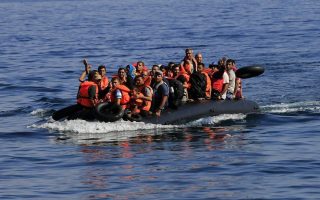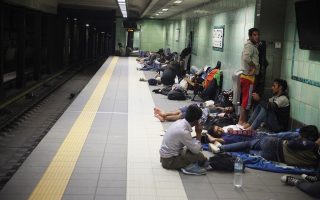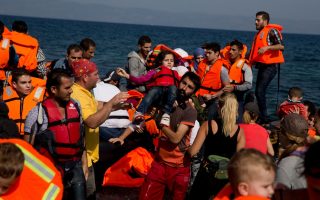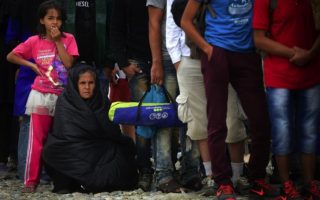EU refugee plan under fire as ministers try to break deadlock
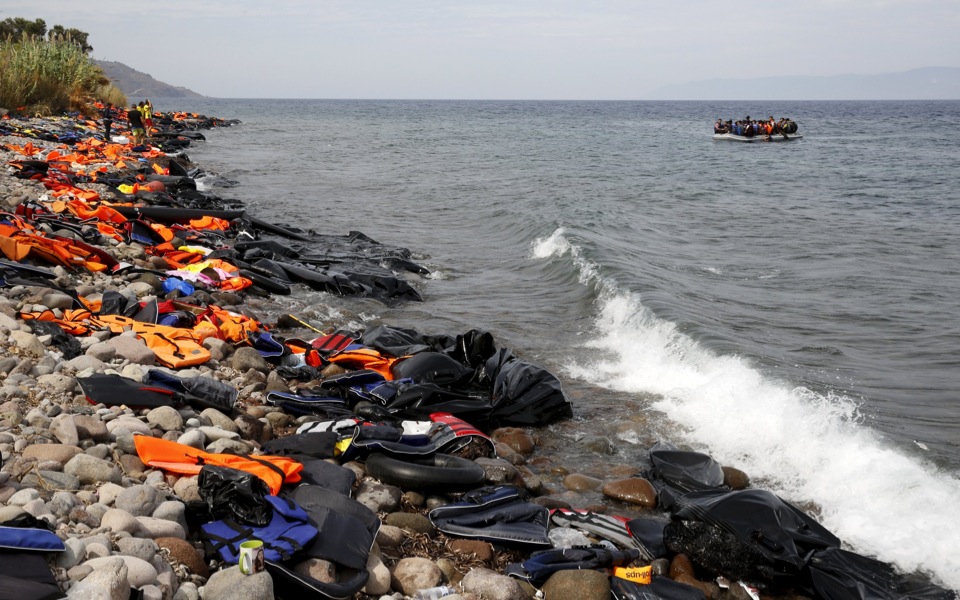
A plan to share out refugees across the European Union was rejected outright by the Czech Republic on Tuesday and criticised by a United Nations agency for not going far enough.
Hours before a meeting of EU interior ministers to discuss the proposal, Czech Prime Minister Bohuslav Sobotka said his country would reject any quota system for redistributing 120,000 refugees across the 28-nation bloc.
Nearly half a million people fleeing war and poverty, two-fifths of them from Syria, have crossed the Mediterranean this year to reach Europe, overwhelming the EU's southern states and plunging them into furious rows over border controls.
The UN refugee agency, the UNHCR, said the 120,000 people the bloc is seeking to share out were equivalent to just 20 days' worth of arrivals at the current rate.
“A relocation programme alone, at this stage in the crisis, will not be enough to stabilise the situation,” UNHCR spokeswoman Melissa Fleming said, calling on the EU to set up reception facilities for tens of thousands of refugees at any one time.
Amid bitter recriminations between member states, EU leaders want to focus at an emergency summit on Wednesday on ramping up aid for Syrian refugees in Turkey and the rest of the Middle East and tightening control on the bloc's frontiers.
Officials are hoping that some compromise on the relocation scheme can be found when interior ministers meet at 2:30 p.m. (1230 GMT) on Tuesday, to prevent the summit being consumed by the same thorny issue.
But despite seeking consensus for weeks on the quota plan, diplomats said it was still unclear whether a deal could be reached.
Senior officials have voiced growing exasperation with the feuding – notably between Germany, the main destination for the refugees, which wants governments to accept mandatory national quotas for housing the newcomers, and ex-Communist eastern states vehemently opposed to such demands.
The EU's executive Commission backs the quota scheme, but opponents call it a distraction, irrelevant to the problem of targeting aid to the neediest and reducing the numbers risking dangerous sea crossings.
After a failed interior ministers meeting last week, it is clear that the dissenters, notably Hungary, Slovakia and the Czech Republic, can be out-voted. But diplomats said they were working to find consensus to avoid such an outcome, arguing that on such a sensitive issue it could further poison relations in the bloc.
“This is the worst I've ever known things in more than 20 years dealing with European affairs,” one senior diplomat said.
Summit plans
EU officials hope the emergency summit will deliver concrete pledges of financial and other support for Turkey, Jordan and other nations housing some four million Syrian refugees, as well as for the 11 million Syrians now homeless in their own country.
“We feel that after the past few weeks people are much more ready to support refugees while they are still outside Europe, so we want to jump on that,” one senior EU official said.
The Commission said last week it was ready to come up with about 1 billion euros for Turkey, more than five times what the EU has already deployed for the two million refugees there.
A senior official told Reuters that about two-thirds of that sum would come from existing funds pencilled in for Turkey and the rest by diverting other money in the EU's common budget. But a key element would be raising a matching sum from EU states.
Funds would be used to help the most affected communities, boost health services and support teaching in Arabic. In return, Turkey must do more to improve the conditions for refugees, to fight smugglers and stop more people reaching Greece.
“Turkey has to deliver,” the official said. “Europe wants to take its share of refugees and will do, but Syrians should stay as close as possible to their homes.”
Turkey wants money but also more recognition of its status after many years in which it has been held in a limbo of possible accession to the EU. Europe is considering holding a “mini-summit” with Turkish President Tayyip Erdogan on Oct. 5.
[Reuters]
